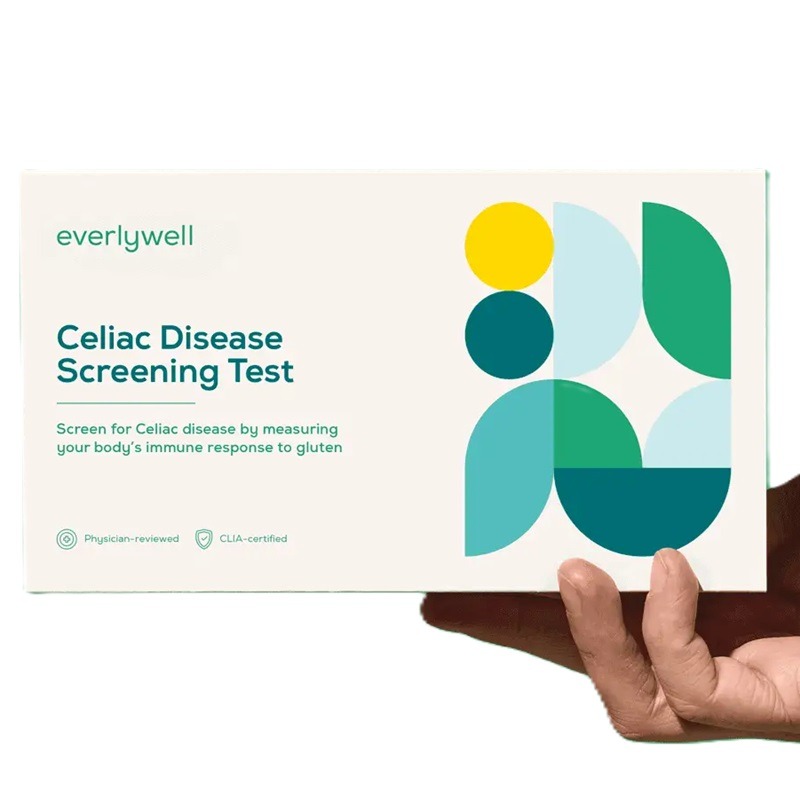Celiac disease occurs when the body can’t handle particular proteins in wheat gluten, rye, or barley. This affects over 1% of the population. Once viewed as only affecting digestion, celiac disease is now recognized as a complex inflammatory condition affecting various body systems.
Celiac disease symptoms can vary widely from person to person, making it challenging to diagnose. The symptoms can range from severe diarrhoea, malnutrition, and lethargy to no obvious symptoms at all.
Warning signs for your digestive system:
- Diarrhoea: increased frequency (usually defined as three or more) loose or watery bowel movements a day.
- Abdominal pain: unpleasant sensation characterised by physical discomfort (such as pricking, throbbing, or aching) and perceived to originate in the abdomen.
- Steatorrhea: greater than normal amounts of fat in the faeces. This results from malabsorption of lipids in the small intestine and results in frothy foul-smelling faecal matter that floats.
- Vomiting: forceful ejection of the contents of the stomach through the mouth by a series of involuntary spasmic contractions.
- Stomatitis: inflammation of the mucous membranes of the structures in the mouth.
Other symptoms to watch out for:
Weight loss; unexplained iron-deficiency anaemia; joint pain (arthralgia); infertility or missed menstrual periods; thinning tooth enamel (enamel hypoplasia); increased bone fragility (osteoporosis); inflammation of the thyroid gland (thyroiditis); partial or complete hair loss (alopecia).
Is celiac disease genetic?
Almost everyone with celiac disease – about 98.9% – has the HLA-DQ2 or HLA-DQ8 genes. These gene variants are crucial for the development of the disease, but their presence does not guarantee that you will develop the condition. Instead, having them puts you at risk.
The current genetic tests for celiac disease examine your HLA status. These tests provide information about your risk of developing celiac disease. Interestingly, these genetic tests also offer a hidden benefit by providing reassurance: if the tests come back negative, the chances of developing it are slim to none.
These are the products we suggest:
At-home HLA genetic tests for celiac disease that checks your HLA status. The key benefits of a genetic test are:
- Anyone over 2 can take it
- It’s a non-invasive mouth swab
- It’s 99% accurate
- You are NOT required to eat gluten
EmpowerDX Celiac Risk Gene Test
This HLA Celiac Risk Gene Test will rule out celiac with >99% confidence using a quick and easy mouth swab. You do NOT need to eat gluten for this test.
If you prefer a blood-based test, we recommend the Everlywell Celiac Disease Screening Blood Test:
Everlywell Celiac Disease Screening Blood Test
This Celiac Disease Screening Blood Test helps you check for 3 key antibodies that may indicate an immune response in your body after you eat gluten.
What’s the next step after genetic testing?
Negative results: Good news! If you test negative for all HLA gene variants, you can rule celiac disease out! But if you’re experiencing symptoms and the genetic test says no, it could either be a wheat allergy or non-celiac gluten sensitivity.
Positive results: If you test positive for any HLA gene variants, there’s a chance you have or could develop celiac disease. This means you are at risk. Between 30 to 40% of people test positive and are at risk, but only 3% develop symptoms.
It’s important to remember:
- Other conditions can cause similar symptoms.
- Sometimes, symptoms can be mild or atypical and go unnoticed.
- When in doubt, it’s important to consult a healthcare professional.






My daughter was dx w/celiac @50. I have had diarrhea w/cramps since I was a child (I’m 69), & dx w/IBS-D. My dr told me to take imodium (6 @ a time) an hour before I eat. I don’t think all those imodium r good for me. Could I have celiac?
Thanks for getting in touch! Celiac disease runs in families, but it also needs something in the environment to set it off. Since your daughter has been diagnosed with celiac disease, you’re much more likely to have it. Like, 5-10% of people with a close relative who has celiac disease also have it. Given that you already experience digestive symptoms (irritable bowel syndrome with diarrhoea), we recommend considering testing.
Have ibs , ulcerative colitis , can’t handle antibiotics as I have no immune system could I have celiacs disease chronic diarrhea. Also have diabetes Sjogren’s dry mouth eyes abdominal psin distended thank you
lfindlay@att.net
We really appreciate your sharing! Celiac disease is super tricky to diagnose because there’s a bunch of symptoms (like 200!) that affect people in different ways, and they can look like other disorders. The major difference between celiac and other digestive diseases, like irritable bowel syndrome (IBS) and ulcerative colitis, is that celiac has a bunch of symptoms that affect the whole body. Celiac disease is linked to type I diabetes. I’d consider if you have any other nervous system symptoms, like fatigue or anxiety, and more unexplained autoimmune symptoms, then it’s worth getting tested.
I was just tested for celiac disease I don’t have any symptoms why would I be tested?
Hi Carol, thank you for reaching out to us. It’s hard to say why you were tested without knowing more about your health. Celiac disease is often tied to other genetic disorders, though. Certain genes connected to celiac disease also have links to conditions such as multiple sclerosis, diabetes, Hashimoto’s disease, lupus, and malfunctioning immune systems. If you’ve received a diagnosis for any of these conditions or frequently fall ill, it might be a good reason to test for celiac disease. That would be our first thought.